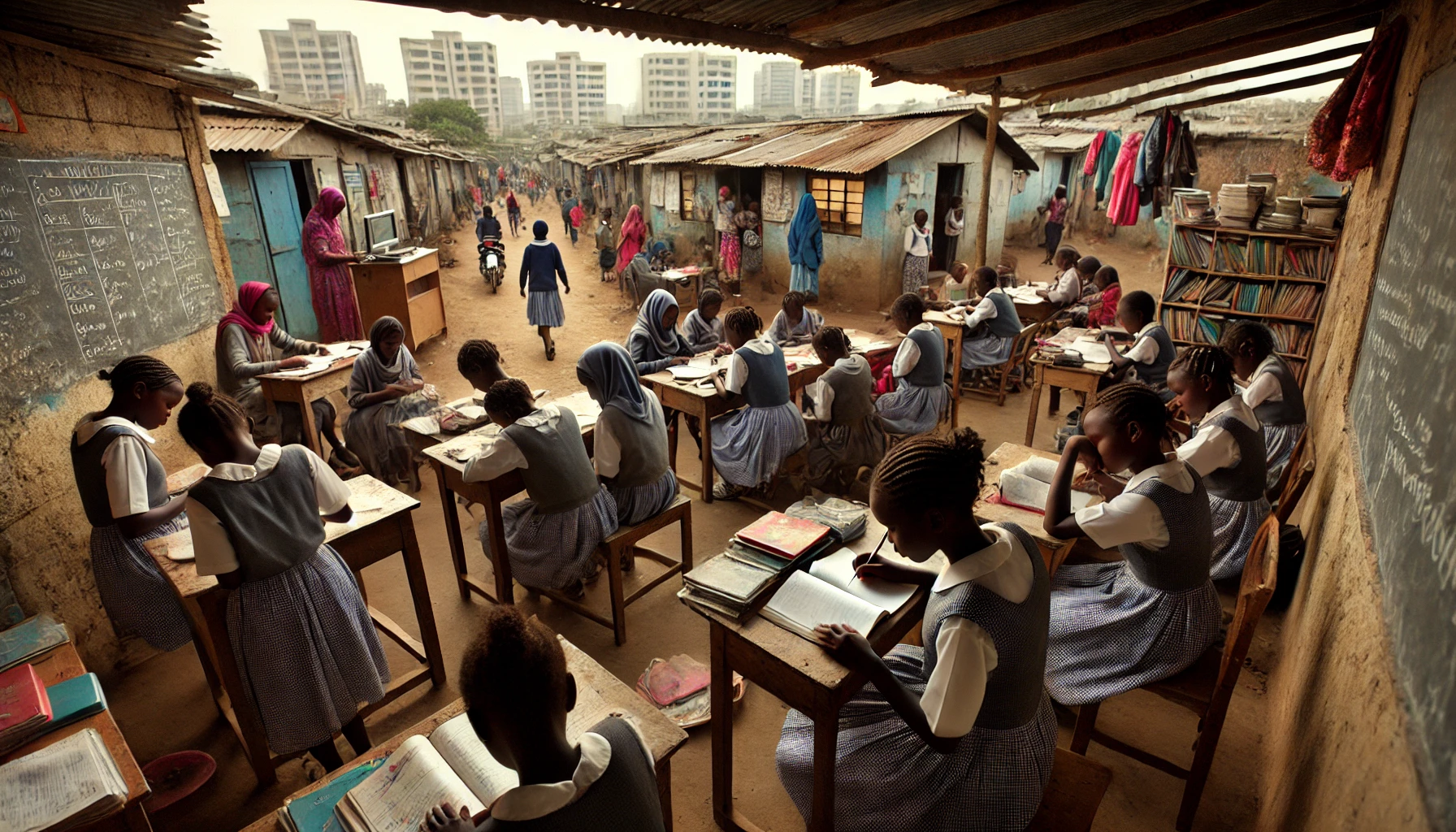Impact of Schooling on Adolescent Pregnancy in Nairobi’s Informal Settlements
A longitudinal study in Nairobi reveals that school attendance and academic skills significantly reduce early pregnancy risks among adolescent girls, while friendships with out-of-school males increase these risks. The study underscores the importance of keeping girls in school to enhance their academic skills and reduce early pregnancy.

- Country:
- Kenya
Adolescent girls' education and friendships in Nairobi, Kenya, have distinct impacts on early pregnancy, as revealed in a longitudinal study by researchers from the University of California, Berkeley, Population Council in Nairobi and New York, and an independent consultant based in Barcelona. The study, which spanned from 2015 to 2019, found that school attendance and academic skills significantly reduce the likelihood of pregnancy among adolescent girls. Specifically, the data showed that attending school decreases the probability of pregnancy by nine percentage points, an additional year of schooling reduces it by three percentage points, and a one standard deviation increase in numeracy skills decreases it by one percentage point. However, the study also highlighted that having male friends who are not in school increases the probability of pregnancy by four percentage points, indicating a significant risk factor associated with out-of-school male friendships.
The Protective Power of Education
The research utilized data from 1,993 girls aged 11 to 15 living in Kibera, an informal settlement in Nairobi, Kenya. It explored the effects of literacy, numeracy, school attendance, grade attainment, and friendships on the probability of experiencing pregnancy. The findings highlighted the protective effects of education on pregnancy, which remain significant even after accounting for the influence of friendships. The longitudinal nature of the data and the use of fixed effects regression models suggest that these relationships are causal. Despite the strong protective effects of education, the study found no evidence that friendships mediate the relationship between education and pregnancy. This suggests that the benefits of education in reducing pregnancy risks are independent of the girls' social networks.
Schooling’s Role in Reducing Early Pregnancies
The study began with baseline data collection in 2015, where only 0.1% of girls reported having experienced a pregnancy. By the third round of data collection in 2019, this figure had risen to 6.3%. The results demonstrated that girls who attended school were significantly less likely to experience pregnancy compared to those who did not. Attending school, completing additional years of schooling, and having higher numeracy skills relative to one's peers significantly decreased the probability of experiencing a pregnancy. The protective effects of numeracy skills and grade attainment remained even after controlling for girls' schooling status, suggesting that the benefits of education extend beyond the period of active school attendance.
Risky Friendships: A Closer Look
The research also highlighted the significant impact of male friendships on pregnancy risk. Girls who reported having male friends who were not in school faced a higher likelihood of pregnancy, even after adjusting for their educational background. These out-of-school male friendships were more frequently reported by girls who had left school, indicating that the risk associated with these friendships is predominantly experienced by out-of-school girls. For in-school girls, the pregnancy risk associated with out-of-school males was lower and not statistically significant. The study did not have data on the characteristics of these out-of-school males, such as their age, which could have provided further insights into the nature of these risky relationships.
Peer Influence and Educational Impact
In terms of other friendships, the study found no significant associations between pregnancy and having male friends who attended school or female friends, whether they were in or out of school, married, or had given birth. This indicates that peer group norms or behaviors did not increase or decrease pregnancy risk in this context. Importantly, the study found that the strong protective effects of girls' numeracy skills, grade completion, and school attendance on the risk of pregnancy were not mediated by their types of friendships.
Policy Implications for Reducing Adolescent Pregnancy
The findings underscore the critical importance of policies and programs that keep girls in school and enhance their academic skills, as these measures have direct sexual and reproductive health benefits. The study suggests that keeping girls in school and ensuring that they learn are not only important outcomes in and of themselves but also contribute to reducing their risk of early pregnancy. However, the study also highlighted the need for interventions that address the specific risks associated with out-of-school male friendships, especially for girls who have left school.
Despite some limitations, such as reliance on self-reported data and the potential for recall or social desirability bias, this analysis provides valuable insights into the ways in which girls' education and social networks operate independently to influence their risk of early pregnancy. The research takes a substantial step beyond cross-sectional analyses by accounting for all time-constant individual effects and lagging covariates, thus addressing reverse causality concerns. Future research can build on these findings by exploring other potential mediators of the effects of education on pregnancy and other sexual and reproductive health outcomes. By untangling the pathways between education and sexual and reproductive health, researchers can better understand how education protects the health and well-being of young people, especially girls, and inform policies and programs aimed at improving both educational and health outcomes for adolescent girls in urban informal settlements.
- READ MORE ON:
- Nairobi
- early pregnancy
- pregnancy
- adolescent girls
- pregnancy risk
- FIRST PUBLISHED IN:
- Devdiscourse










